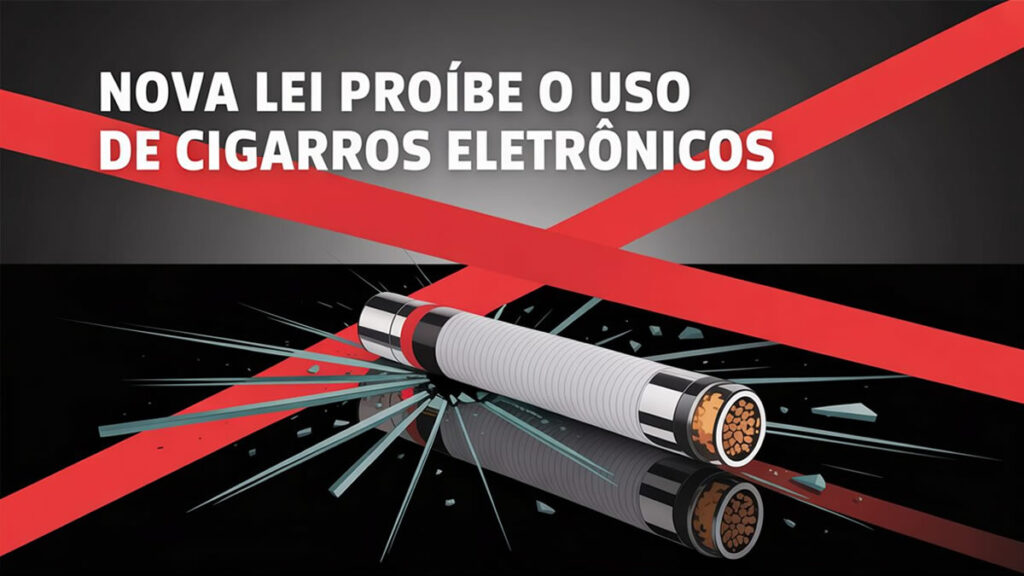City Law Complements National Sales Ban, Targets Vaping in Collective Spaces & by Minors
The city of Limeira, in São Paulo state, has become the first municipality in Brazil to enact a specific law prohibiting the use of electronic cigarettes (vapes) in public spaces and places of collective use. This pioneering local legislation, recently sanctioned and set to take effect within 30 days, marks a significant step in Brazil's efforts to regulate vaping, particularly amid rising concerns about youth uptake and public health risks.
Authored by councilman Nilton César dos Santos, the law introduces strict limitations on where vaping is permitted, effectively banning it from a wide range of commonly accessed areas. This local usage ban complements existing national regulations from Brazil's health agency, Anvisa, which already prohibit the manufacture, import, sale, and advertising of all e-cigarette products nationwide.
Scope of Limeira's Public Vaping Ban
The new Limeira law specifically targets the *use* of e-cigarettes. Key restrictions include:
- Prohibition in Public Spaces: Vaping is banned in all public areas, encompassing both enclosed and open-air spaces with collective access. This includes locations like public squares, parks, gyms, and sports facilities.
- Restrictions in Collective Use Establishments: The ban extends to numerous privately-owned venues accessible to the public, such as restaurants, bars, cafes, nightclubs, supermarkets, shopping malls, hotels, and inns.
- Workplace and Residential Common Areas: Use is also prohibited in general work environments and the common areas of residential condominiums.
- Ban for Minors: The law explicitly forbids anyone under the age of 18 from using e-cigarettes, regardless of location.
Enforcement will be handled by the City of Limeira, with potential actions including warnings, fines, and removal of violators from premises. Businesses are mandated to display visible notices about the prohibition and may face liability for non-compliance.
Complementing National Regulations and Health Concerns
While Limeira's law focuses on *usage*, it reinforces Brazil's existing national stance against e-cigarettes. Anvisa's long-standing ban (since 2009, reaffirmed in 2024) on the commercialization of vapes is based on assessments of health risks, particularly for young people, and a lack of conclusive evidence supporting their effectiveness for smoking cessation. Furthermore, Brazil's general "anti-smoking law" already restricts smoking in closed collective spaces.
Limeira's initiative intensifies local oversight and specifically addresses vaping in outdoor public areas, which might not be covered as explicitly by older smoking laws. Health organizations like the Oswaldo Cruz Foundation (Fiocruz) highlight growing evidence linking vape aerosol inhalation to respiratory issues, inflammation, cardiovascular damage, and potential long-term risks due to unregulated liquid compositions often containing high nicotine levels and toxic substances. The attractive packaging and sweet flavors are seen as major contributors to youth appeal.
A Potential Model for Brazil?
Councilman dos Santos described the measure as one of "public health," not moral judgment, expressing hope that Limeira could serve as a model for other Brazilian cities. Public policy experts and medical groups like the Federal Council of Medicine (CFM) and the Brazilian Association of Pulmonology (SBPT) have voiced support for stricter controls, particularly concerning youth access.
Pulmonologist Rafael Motta noted the "alarming" popularization of vaping among teenagers, viewing local measures like Limeira's as crucial steps. Discussions about similar municipal bans are reportedly underway in other major cities like São Paulo and Belo Horizonte. This local action reflects a growing international trend where jurisdictions implement specific usage restrictions alongside or in place of national sales policies, aiming to curb public exposure and youth access to vaping.

Digital Content Creator & Vape Industry Analyst
Jake Miller is a prominent voice in the American vaping community, known for his transparent, tech-focused approach to harm reduction and hardware innovation. With over six years of experience in the industry, Tyler transitioned from a hobbyist to a full-time content creator, building a loyal following through his unfiltered reviews and deep-dive technical tutorials.




